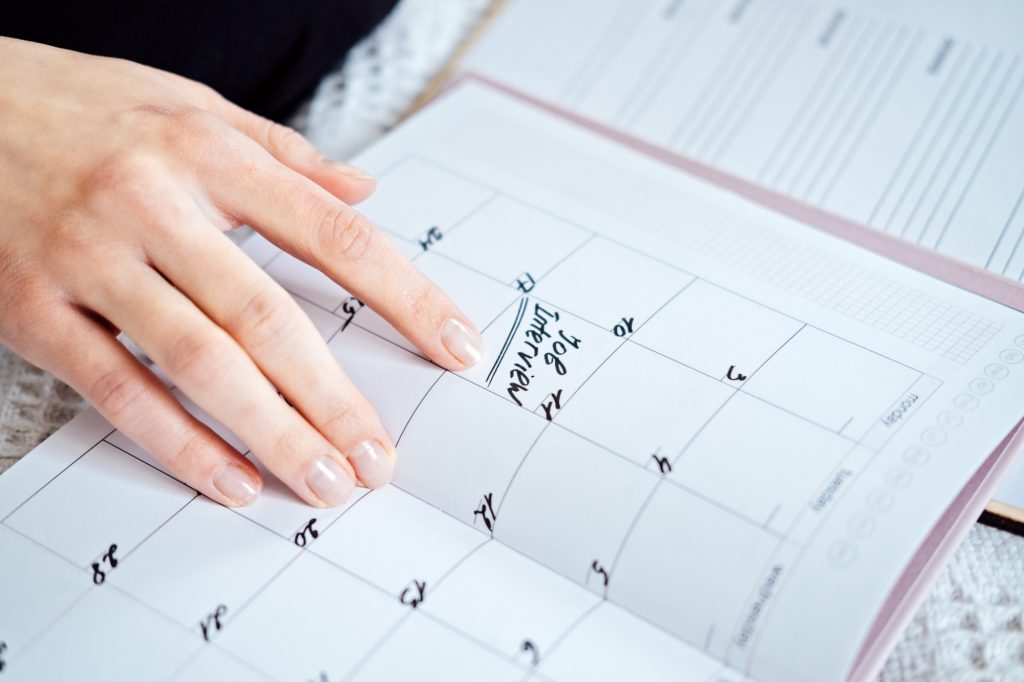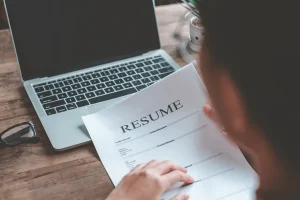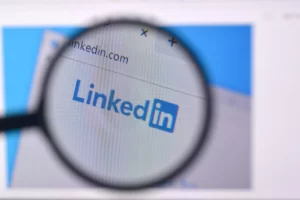Job interviews can be nerve-wracking, even for the most experienced professionals. Whether you’re a fresh graduate or a seasoned executive, knowing how to prepare for an interview and effectively answer questions, including conducting thorough interview research, is the key to standing out and landing your dream job.
Preparation not only boosts your confidence but also allows you to present your qualifications and personality in the best possible light. In this comprehensive guide, we’ll walk you through interview tips and everything you need to know—from understanding the company to mastering your pitch—so you walk into your next interview fully prepared and ready to impress. Additionally, building rapport with the interviewers by researching them beforehand can facilitate more engaging conversations and a positive interaction.
Introduction to Job Interviews

A job interview is a crucial step in the hiring process, allowing potential employers to assess a candidate’s knowledge, skills, and abilities to determine their success in a position. It is a two-way conversation between the candidate and the interviewer, where both parties aim to gain as much information as possible about the company culture to make an informed decision.
To succeed in a job interview, it is essential to have a good understanding of the company culture, job description, and requirements. Start by thoroughly researching the company and reviewing the job description carefully. This will help you tailor your responses to align with the company’s values and the specific demands of the role.
Preparation and a positive attitude are crucial for success in an interview. Conducting mock interviews can help you practice your responses and get comfortable with the interview format. Additionally, practicing common interview questions will ensure you can answer confidently and clearly. By investing time in preparation and providing specific examples, you can increase your chances of a successful interview and make a strong impression on potential employers.
Understand the Job and the Company
Before anything else, take the time to study the job description closely. Highlight the required skills, qualifications, and responsibilities. Make a list of the specific experiences and achievements you can mention that match those expectations.
Aligning your career goals with the company’s mission and values is crucial. Clearly articulating how your aspirations fit with the company’s direction can demonstrate your intention and fit during the interview process.
Next, research the company:
- Visit their website and read their mission, vision, and recent updates.
- Review their social media pages to get a sense of their culture and community engagement.
- Check recent news or press releases to see what projects or milestones they’re celebrating.
This knowledge allows you to tailor your responses to align with the company’s values and priorities—something hiring managers notice and appreciate.
Know the Types of Interviews You Might Face
Different roles and companies use various types of interviews. Understanding the format beforehand helps you better prepare:
- Phone Interviews: Focus on clear speech and concise answers.
- Video Interviews: Ensure good lighting, neutral background, and a reliable internet connection.
- In-Person Interviews: Dress appropriately and be mindful of body language.
- Panel Interviews: Maintain eye contact with each panelist and address them collectively.
- Behavioral Interviews: Use real-life scenarios to showcase how you handle challenges.
- Technical Interviews: Brush up on key skills or tasks you might be asked to demonstrate.
Each format requires a slightly different preparation strategy, so knowing what to expect gives you a strong advantage. If you don’t fully understand a question or the interview format, don’t hesitate to seek clarification to ensure you provide accurate responses and are adequately prepared for the responsibilities of the role.
Review Common Interview Questions and Craft Your Answers
While every interview is different, some questions come up frequently. Prepare strong responses using the STAR method (Situation, Task, Action, Result), especially for behavioral questions. It is crucial to explain your qualifications and accomplishments clearly, demonstrating how your skills will benefit the company.
Here are common questions to prepare for:
- “Tell me about yourself.”
- “Why do you want to work here?”
- “Describe a challenge you’ve faced and how you handled it.”
- “What are your strengths and weaknesses?”
- “Where do you see yourself in five years?”
Practicing these ensures you respond with clarity, confidence, and relevance to the job role.
Prepare Questions to Ask the Interviewer
A job interview isn’t just about answering questions—it’s also about asking thoughtful questions that show your interest in the role and company.
Examples include:
- “What does success look like in this role?”
- “Can you describe the team I’ll be working with?”
- “What are the biggest challenges facing the department right now?”
- “How do you support employee growth and development?”
- “Can you describe a typical day in this position?”
Smart questions reflect critical thinking and enthusiasm for the position.
Craft Your Elevator Pitch
The first impression often starts with the prompt, “Tell me about yourself.” This is your chance to deliver a well-structured 30–60-second pitch that connects your background to the job opportunity.
Your pitch should:
- Highlight your professional experience in a nutshell
- Mention your most relevant strengths
- Emphasize what you’re looking for and why this company appeals to you
- Clearly articulate your career goals and how they align with the job opportunity
For example: “I’m a marketing professional with five years of experience developing content strategies for tech startups. I specialize in SEO, branding, and lead generation. I’m passionate about using data to improve campaign performance, and I’m excited about the opportunity to contribute to a forward-thinking company like yours.”
Dress Appropriately for the Interview

Your appearance sets the tone before you even speak. Choose attire that fits the industry and reflects professionalism.
- Corporate roles: Opt for formal business wear (suit, blazer, or dress shirt).
- Creative or tech roles: Smart casual may be acceptable, but still be neat and polished.
- Virtual interviews: Dress professionally from head to toe—yes, even if they won’t see your lower half. Check out some great tips for job interview makeup to ensure your look is polished on screen.
Keep accessories minimal, ensure grooming is clean and tidy, and remember that confidence also comes from feeling comfortable in what you wear.
Interview Etiquette
Interview etiquette is a critical aspect of the interviewing process. It involves being respectful, professional, and courteous throughout the interview. This starts with dressing appropriately for the role and industry, ensuring you present yourself in a polished and professional manner.
During the interview, make eye contact and use good body language to convey confidence and engagement. Be prepared to ask thoughtful questions that show your interest in the position and the company. Providing specific examples of your skills and experiences can help illustrate your qualifications and make your answers more compelling.
Listening carefully to the interviewer is just as important as answering questions. Listening carefully to the interviewer and their interview questions is just as important as answering questions. It shows respect and allows you to respond more effectively. After the interview, sending a thank-you note or email is essential. This gesture expresses gratitude, reiterates your interest in the position, and helps keep you top of mind for the interviewer.
Being prepared to discuss salary expectations and how your values align with the company’s can also set you apart from other candidates. By focusing on building rapport with the interviewer and showcasing your relevant skills, you can take the next steps towards a successful interview and potentially landing your dream job.
Practice Through Mock Interviews
One of the best ways to improve is through repetition. Conduct mock interviews with a friend, mentor, or career coach. Use video recordings to observe:
- Body language
- Tone of voice
- Clarity and length of answers
You can also leverage AI-based platforms that simulate interviews and provide real-time feedback. This extra practice can be the difference between average and outstanding performance.
Gather and Organize Your Materials
Prepare a professional-looking folder with the following:
- Multiple printed copies of your resume
- Your portfolio (if applicable)
- A notepad and pen for jotting down notes
- A notepad for writing notes during the interview
- A list of references
If it’s a virtual interview, have digital versions ready to share or screen-share, and close unnecessary tabs or apps before the call.
Plan the Interview Logistics
A great candidate who shows up late can still make a poor impression. Here’s how to stay ahead:
- In-person: Know the location, route, and parking situation. Arrive 10–15 minutes early.
- Online: Test your internet, camera, mic, and software a day in advance. Prepare a backup device or hotspot if needed.
- Hybrid: Double-check whether you’re expected in person or online, especially for the first round.
Being prompt shows professionalism and respect for the interviewer’s time.
Develop the Right Mindset
The mental aspect of preparation is just as important as the logistical side. Stay focused and positive.
- Visualize success: Picture yourself walking into the room and answering confidently.
- Practice mindfulness: Deep breathing or meditation helps reduce pre-interview anxiety.
- Use affirmations: Repeat phrases like “I am qualified” or “I have value to offer.”
- Take a moment: Before answering questions, briefly pause to gather your thoughts. This ensures clarity and thoughtfulness in your responses.
Self-confidence is contagious. If you believe in your abilities, the interviewer will too.
Send a Professional Follow-Up

Once the interview is over, your work isn’t done. A follow-up message sets you apart and reinforces your interest.
Include the following:
- A genuine thank you for the opportunity
- A recap of your excitement for the role
- A short sentence reminding them why you’re a strong fit
For example:
“Thank you again for taking the time to speak with me today. I enjoyed learning more about the team and the exciting projects ahead. I’m enthusiastic about the opportunity to contribute and confident that my background in [specific skill] makes me a great fit for this position.”
Interview Mistakes to Avoid
Even the most qualified candidates can stumble due to common missteps. Avoid these pitfalls:
- Rambling or going off-topic
- Interrupting the interviewer
- Speaking negatively about past employers
- Not asking any questions
- Showing up late or looking unprepared
- Failing to listen carefully to the interviewer
Awareness of these mistakes—and actively working to prevent them—helps you maintain a strong impression.
Bonus Tips for Remote Interviews
With remote work becoming more common, it’s essential to master virtual interviews.
- Choose a quiet, well-lit space with minimal distractions.
- Frame your shot so your head and shoulders are centered.
- Keep notes nearby, but don’t read from them.
- Make eye contact by looking at the camera, not the screen.
- Test your tech on the platform being used (Zoom, Google Meet, etc.).
Don’t forget to smile. It adds warmth and energy to your responses, even on-screen.
Understanding the interview process is crucial for remote interviews, including practicing speaking, body language, and rehearsing responses to common questions to enhance confidence and performance.
Preparing for Second Interviews or Offers
Preparation still matters if you’re called back for a second interview or receive a job offer. In cases where you need to adjust your interview schedule due to unforeseen circumstances, it is important to know how to reschedule a job interview the right way.
- Expect deeper, more technical or role-specific questions
- Reiterate your understanding of the company’s goals
- Be ready to discuss salary, benefits, and start dates professionally
- Review the offer carefully and ask clarifying questions when needed
Second interviews are not just about validation—they often determine the final decision.
Ready to Land the Job?
Acing an interview starts with preparation. When you understand the role, practice your responses, and present your best self, you increase your chances of securing the position. Following a few steps, such as preparing key strategies and following up with the employer after the interview, can significantly enhance your readiness and make a positive impression.
If you want to boost your confidence even further, make sure your resume speaks volumes before you say a word. Work with top resume writers who specialize in creating compelling, keyword-optimized resumes that get noticed by employers and applicant tracking systems alike.








